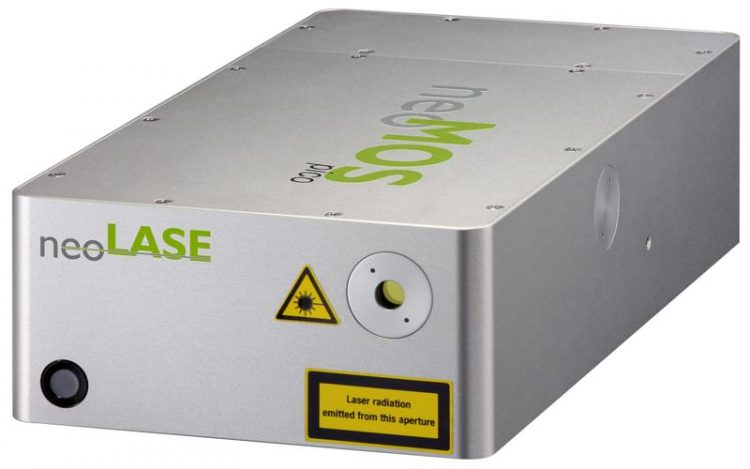ShortPulse: Shorter pulses for more efficiency and precision

neoMOS-2ps neoLASE GmbH
With the new neoMOS-2ps neoLASE introduces a new laser system with laser pulses in the lower picosecond range.
The system delivers picosecond laser pulses with less than 2 ps pulse duration and up to 30 µJ pulse energy, enabling new applications or more efficient and precise material processing’s.
The increasing demands in laser material applications require high flexible and comprehensive laser systems.
For these areas neoLASE developed a new picosecond laser system with pulse peak power levels of more than 10 MW.
The system is based on a patent pending technology that allows the linear amplification of laser pulses in the range of 1 – 2 ps pulse duration without using CPA or regenerative amplifier technologies.
At the same time, the system keeps the cost efficiency, compactness and ease of use of the established neoMOS laser systems.
This and other new developments will be presented at neoLASE booth on Laser World of Photonics Hall A3 booth 438/2 or visit neoLASE webpage under www.neoLASE.com.
Media Contact
All latest news from the category: Machine Engineering
Machine engineering is one of Germany’s key industries. The importance of this segment has led to the creation of new university degree programs in fields such as production and logistics, process engineering, vehicle/automotive engineering, production engineering and aerospace engineering among others.
innovations-report offers informative reports and articles covering technologies such as automation, motion, power train, energy, conveyor, plastics, lightweight construction, logistics/warehousing, measurement systems, machine tools and control engineering.
Newest articles

Properties of new materials for microchips
… can now be measured well. Reseachers of Delft University of Technology demonstrated measuring performance properties of ultrathin silicon membranes. Making ever smaller and more powerful chips requires new ultrathin…

Floating solar’s potential
… to support sustainable development by addressing climate, water, and energy goals holistically. A new study published this week in Nature Energy raises the potential for floating solar photovoltaics (FPV)…

Skyrmions move at record speeds
… a step towards the computing of the future. An international research team led by scientists from the CNRS1 has discovered that the magnetic nanobubbles2 known as skyrmions can be…





















